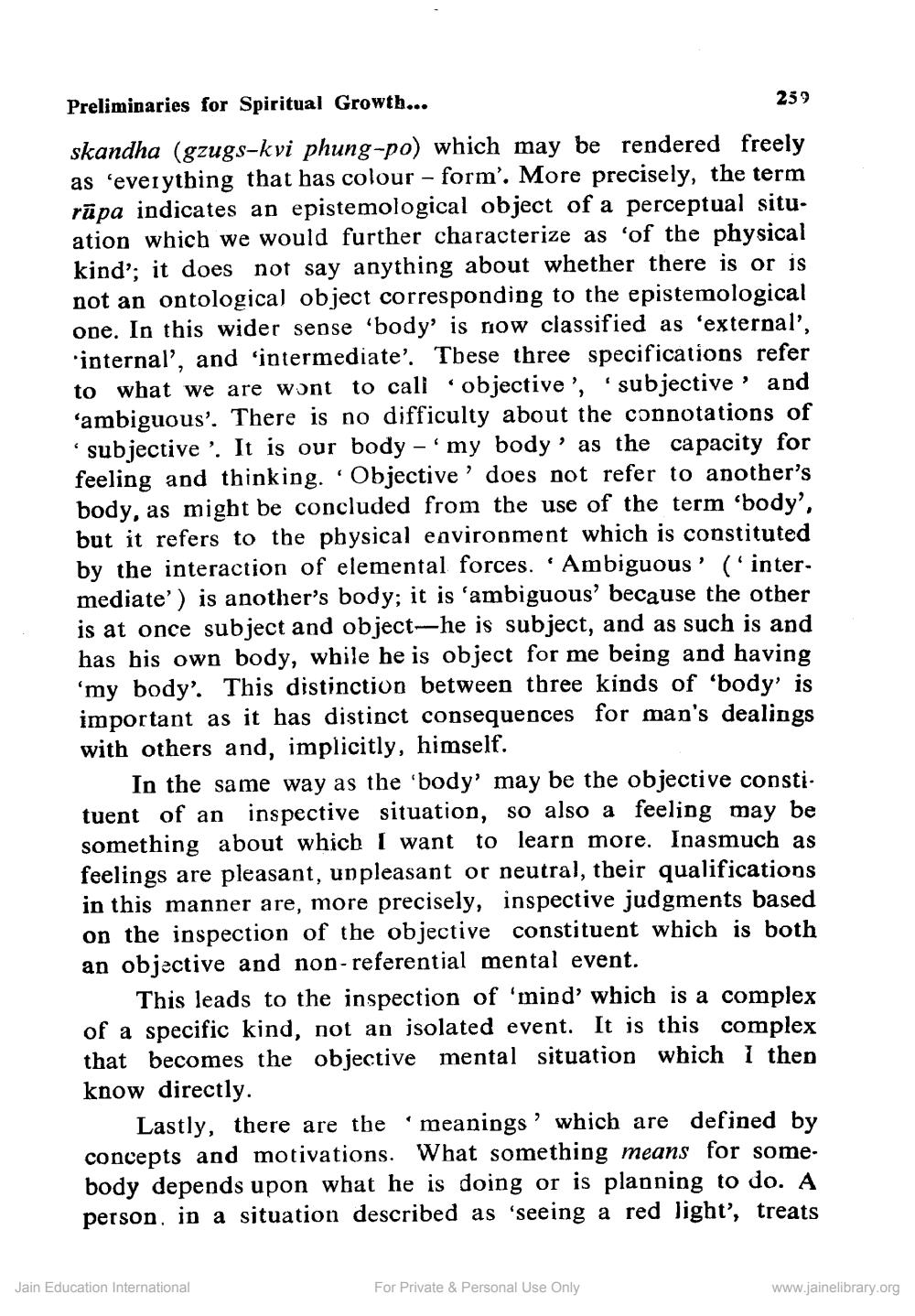________________
Preliminaries for Spiritual Growth...
259
skandha (gzugs-kvi phung-po) which may be rendered freely as 'everything that has colour - form'. More precisely, the term rūpa indicates an epistemological object of a perceptual situation which we would further characterize as 'of the physical kind'; it does not say anything about whether there is or is not an ontological object corresponding to the epistemological one. In this wider sense 'body' is now classified as 'external', internal', and 'intermediate'. Tbese three specifications refer to what we are wont to call objective', 'subjective' and 'ambiguous'. There is no difficulty about the connotations of 'subjective '. It is our body - 'my body' as the capacity for feeling and thinking. Objective' does not refer to another's body, as might be concluded from the use of the term 'body', but it refers to the physical environment which is constituted by the interaction of elemental forces. Ambiguous' (intermediate') is another's body; it is 'ambiguous' because the other is at once subject and object--he is subject, and as such is and has his own body, while he is object for me being and having 'my body. This distinction between three kinds of 'body' is important as it has distinct consequences for man's dealings with others and, implicitly, himself.
In the same way as the 'body' may be the objective consti. tuent of an inspective situation, so also a feeling may be something about which I want to learn more. Inasmuch as feelings are pleasant, unpleasant or neutral, their qualifications in this manner are, more precisely, inspective judgments based on the inspection of the objective constituent which is both an objective and non-referential mental event.
This leads to the inspection of 'mind' which is a complex of a specific kind, not an isolated event. It is this complex that becomes the objective mental situation which I then know directly.
Lastly, there are the meanings' which are defined by concepts and motivations. What something means for some. body depends upon what he is doing or is planning to do. A person, in a situation described as 'seeing a red light', treats
Jain Education International
For Private & Personal Use Only
www.jainelibrary.org




